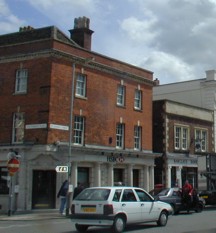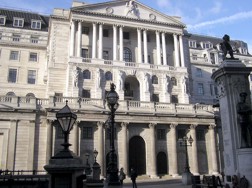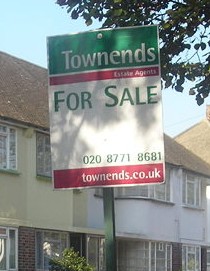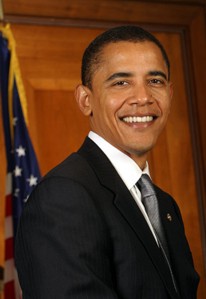- In: dogs | News
- Leave a Comment
This is the big question with Crufts Dog Show only 3 months away.
Read more.
- In: News
- Leave a Comment
Read the latest post:
Child cruelty and news reporting
Blog moving to new URL
Posted on: November 12, 2008
- In: News | Ramblings
- Leave a Comment
This blog is now installed on its own server and I hope you will visit it there:
Stazjia’s Commentary.
- In: News
- 2 Comments
Almost everybody in the UK knows that the Government has given the banks a huge bail-out package to help the British economy in general. Two days ago the Bank of England cut the interest rate by 1.5% – a move that astonished everybody, including the experts.
After the Bank’s announcement, the big question was, would the banks pass this cut on to their customers?
The Chancellor of the Exchequer, Alastair Darling, had a meeting yesterday with the heads of the major high street banks and told them in no uncertain terms that they were expected to pass the cut on to borrowers.
Recent interest rate cuts have not been passed on to customers so not helping to the slide into recession. It is said the Chancellor pointed out to the bank chiefs that people of the UK are not happy having to pay out of taxes to help the banks but still see the banks keeping interest rates on loans and mortgages high. He is said to have told them that any future government help would not be forthcoming if the banks were not prepared to co-operate.

HSBC and Barclays Banks side by side in a street in Devizes, Wiltshire, as well as in defying the government.
Mortgages
This pep talk helped to some extent. Only Barclays and HSBC have not agreed to pass on the full interest rate cut to customers on standard variable mortgages (those whose repayments go up and down in line with bank interest rates but its at the bank’s discretion and may not reflect the increase or decrease).
Gordon Brown said, “Yesterday, we saw decisive action on interest rates from the Bank of England and the European Central Bank, and I welcome the fact that a number of British banks have now decided to pass on the interest rate cut to customers, to families and to businesses.”
The people who are happy are those on variable rate mortgages that literally track the rise and fall of the rate set by the Bank of England. Here’s the sting in the tail – most banks will no longer sell tracker mortgages as of yesterday. They have also stopped opening many new premium savings accounts
Behaviour of the Banks
For many years, people in this country have learned to hate banks. Their bank charges have been a scandal and many people have started legal proceedings against banks to recover excessive charges. Almost all of these have been settled out of court by the banks because they did not want a legal ruling (ie case law) on the subject in case it opened the flood gates to more people recovering charges.
In this current economic crisis they are withdrawing overdraft facilities from small businesses, calling in loans after maybe just one missed payment and foreclosing on mortgages much more quickly than they ever did in the past.
This has led to the closure of small businesses, an increase in bankruptcies and repossessions of homes. The latter is particularly hard to understand.
The housing market is currently in a very bad state. Mortgages are hard to get, prices have fallen and very little property is being sold. Repossessed homes are just going to stand empty while families have to be helped by local councils.
Giving people more time, maybe repayment holidays and trying to avoid repossession would appear more sensible. If the banks were prepared to help people get back on their feet, there is a chance that many of them would be able to pay their mortgages in the future. If not, and repossession has been delayed, at least the housing market might recover somewhat so houses that have to be repossessed might sell more quickly and at a better price.
It seems that the banks are determined to put their own interests above those of the country in general. They don’t seem to understand that a long term recession will hit them too.
Some years ago, a farmer was very upset with his bank so he took his muck spreader to the local branch of his bank in Chippenham, Wiltshire, and sprayed the front of the bank with muck. It was reported on the TV news and most people said “Good for him, serve them right.” Perhaps that’s what the banks deserve now.
We vote for our government quite differently here in the UK to the way it’s done in the USA.
For a start, we don’t vote for the Prime Minister. We vote for a member of Parliament (MP) from the people who are standing in the constituency where we live. We have a ‘first past the post’ system here meaning that each constituency counts the votes for all the candidates running for Parliament and the party that wins the largest number of seats (gets the largest number of MPs) forms the government. The leader of that party, like Tony Blair, is invited by the Queen to form a government and so becomes Prime Minister.
Election campaigns are relatively short compared to the USA. Usually no longer than 6 weeks but they can be much shorter.
The other big difference is that, if the former party of government loses the election, the winning party immediately forms the government and its leader becomes Prime Minister. Usually, the ex-Prime Minister moves out of 10 Downing Street the day after the election and the new Prime Minister moves in. It’s quite brutal, really.
The way we actually cast our votes is different too – more primitive, I suppose. There are postal votes but these are a minority. Most people go along to a polling station in their constituence. This is usually a room in a school or town hall, or a village hall, even pubs are used in some places where there isn’t another suitable venue.

polling booths
Originally uploaded by knautia
When I vote, which I do in all elections, I go to the polling station, give my name and address to the polling officer who finds it on the electoral list for that constituency. I’m given a polling slip which has a list of all the candidates on it and the officer marks the register to show I’ve come in to vote. I take the slip to a flimsy little booth, knocked up from plywood but shielded on 3 sides so no one can see me vote with a horizontal, flat surface. There’s a pencil in the booth tied to the flat surface and I use that to put a cross in the box next to my choice. I fold it in half, take it out and put it in a big locked metal box. That’s it – my democratic right exercised!
Polling stations open at 7am and close at 10pm. During that time, no politicians or political party members may canvass for votes or try to influence voters. There are no discussions in the media of the issues or the chances of any of the parties. All the UK media is an election free zone – a blessed relief, usually. There will be party workers sitting outside the polling station but they are not allowed to talk to voters on the way in. On the way out they can ask who you voted for so they can compile an exit poll to see how it’s going for their parties.
No votes are ever counted before the polls closed. At 10pm, when the polling stations close, the boxes are taken, by high security transport, to a central place in the constituency. There bank tellers sit and physically sort and count the voting slips. The candidates are usually there trying to guess how they’ve done by the height of the piles of slips for each of them. There’s a race for which constituency counts the votes first. Of course it’s the smallest constituencies that win. When the poll is counted in a constituency, the returning officer gets all the candidates together behind him, on a platform, and announces the result. The winner makes a speech of thanks and the loser is magnanimous in defeat – that’s the British way.

Cambridge: Local elections
Originally uploaded by Michiel2005
The first results usually come in about an hour or so after polls close. After that, they continue to come in throughout the night. Some constituencies are bellwethers. I can always remember the May 1997 election when Tony Blair became Prime Minister and the Tories were defeated. The first result came through from one of these before midnight and it went to Labour. I was in bed watching TV and I bounced, punched the air and screamed “Yeeesssss!” I felt pretty silly a moment later. After that, it was like a massacre as prominent Conservative politicians lost their seats one after another. One was Michael Portillo who had been an important Cabinet Minister. For weeks afterwards people said, with a merry grin, “Did you see Portillo’s face?”
The next day, Tony Blair, with his wife, Cherie, were shown on TV going through the crowds in Downing Street to take up office. He did a speech in front of number 10 and I know that I wasn’t the only one watching who was in tears. We were so fed up with the Conservative government and the country were very happy to see the back of it. Who says the British have a stiff upper lip and don’t show emotion?
Of course, we didn’t know then he would take us to war in Iraq.
We vote for our government quite differently here in the UK to the way it’s done in the USA.
For a start, we don’t vote for the Prime Minister. We vote for a member of Parliament (MP) from the people who are standing in the constituency where we live. We have a ‘first past the post’ system here meaning that each constituency counts the votes for all the candidates running for Parliament and the party that wins the largest number of seats (gets the largest number of MPs) forms the government. The leader of that party, like Tony Blair, is invited by the Queen to form a government and so becomes Prime Minister.
Election campaigns are relatively short compared to the USA. Usually no longer than 6 weeks but they can be much shorter.
The other big difference is that, if the former party of government loses the election, the winning party immediately forms the government and its leader becomes Prime Minister. Usually, the ex-Prime Minister moves out of 10 Downing Street the day after the election and the new Prime Minister moves in. It’s quite brutal, really.
The way we actually cast our votes is different too – more primitive, I suppose. There are postal votes but these are a minority. Most people go along to a polling station in their constituence. This is usually a room in a school or town hall, or a village hall, even pubs are used in some places where there isn’t another suitable venue.
When I vote, which I do in all elections, I go to the polling station, give my name and address to the polling officer who finds it on the electoral list for that constituency. I’m given a polling slip which has a list of all the candidates on it and the officer marks the register to show I’ve come in to vote. I take the slip to a flimsy little booth, knocked up from plywood but shielded on 3 sides so no one can see me vote with a horizontal, flat surface. There’s a pencil in the booth tied to the flat surface and I use that to put a cross in the box next to my choice. I fold it in half, take it out and put it in a big locked metal box. That’s it – my democratic right exercised!
Polling stations open at 7am and close at 10pm. During that time, no politicians or political party members may canvass for votes or try to influence voters. There are no discussions in the media of the issues or the chances of any of the parties. All the UK media is an election free zone – a blessed relief, usually. There will be party workers sitting outside the polling station but they are not allowed to talk to voters on the way in. On the way out they can ask who you voted for so they can compile an exit poll to see how it’s going for their parties.
No votes are ever counted before the polls closed. At 10pm, when the polling stations close, the boxes are taken, by high security transport, to a central place in the constituency. There bank tellers sit and physically sort and count the voting slips. The candidates are usually there trying to guess how they’ve done by the height of the piles of slips for each of them. There’s a race for which constituency counts the votes first. Of course it’s the smallest constituencies that win. When the poll is counted in a constituency, the returning officer gets all the candidates together behind him, on a platform, and announces the result. The winner makes a speech of thanks and the loser is magnanimous in defeat – that’s the British way.
The first results usually come in about an hour or so after polls close. After that, they continue to come in throughout the night. Some constituencies are bellwethers. I can always remember the May 1997 election when Tony Blair became Prime Minister and the Tories were defeated. The first result came through from one of these before midnight and it went to Labour. I was in bed watching TV and I bounced, punched the air and screamed “Yeeesssss!” I felt pretty silly a moment later. After that, it was like a massacre as prominent Conservative politicians lost their seats one after another. One was Michael Portillo who had been an important Cabinet Minister. For weeks afterwards people said, with a merry grin, “Did you see Portillo’s face?”
The next day, Tony Blair, with his wife, Cherie, were shown on TV going through the crowds in Downing Street to take up office. He did a speech in front of number 10 and I know that I wasn’t the only one watching who was in tears. We were so fed up with the Conservative government and the country were very happy to see the back of it. Who says the British have a stiff upper lip and don’t show emotion?
Of course, we didn’t know then he would take us to war in Iraq.
More News About Pedigree Dogs
Posted on: November 3, 2008
- In: dogs | News
- Leave a Comment
White Pekingese Puppy
Originally uploaded by patisotagami
There have been further developments in the scandal of pedigree dogs and the way faults causing pain, deformity and early death are deliberately bred into dogs so they meet the Kennel Club’s criteria to win at its shows. If you missed my early posts on the subject you can catch up on The Scandal of Pedigree Dogs and More about the Pedigree Dog Scandal.
At the beginning of October the Kennel Club addressed the issue of inbreeding faults into pedigree dogs. In a statement, it said:
“The groundswell of public attention on the very important matters surrounding dog breeding is a welcomed momentum that will enable us to drive through, with added urgency, new and extended initiatives that will help to safeguard the health of our pedigree dogs.
“We have been listening and agree with the general public’s view that more needs to be done. We have also been encouraging people to use the health schemes available for dogs.”
The Kennel Club also wants the British Government to pass legislation making its Accredited Breeder Scheme compulsory so that it would be illegal to sell puppies unless the seller is a member. Of course, this would require inspectors to police it otherwise it would be relying on members of the public to complain.
The Kennel Club is also issuing new breed standards, the first of which will apply to pekingese whose flat faces cause severe breathing problems. Additionally, breeders will have to sign up to the club’s code of ethics forbidding the culling of healthy puppies. Again, how will this be policed? If a breeder kills the puppies, who is to know its been done?
In spite of the Kennel Club’s statement, at the end of October the major petfood manufacturer, Pedigree which has sponsored the Crufts Dog Show for 44 years, has announced they are withdrawing their sponsorship. The company issued a statement:
“After careful consideration, Pedigree has decided to withdraw its sponsorship of Crufts,” the company said. “The Pedigree brand has evolved and we are prioritizing initiatives that support the broadest possible community of dog owners such as our successful program the Pedigree Adoption Drive, and our online service for breeders, pedigreedirect.co.uk.”
Meanwhile the Dogs’ Trust issued a statement on 28th October:
“With the announcement that Pedigree is no longer sponsoring Crufts, many newspapers and online forums reported the news this weekend. You may have incorrectly read that the Kennel Club is working with Dogs Trust to review breeding standards for 209 species of pedigree dogs. Dogs Trust has no involvement with the review of breed standards which is currently underway; this is something the Kennel Club is conducting independently.
Although Dogs Trust has withdrawn from Crufts and Discover Dogs, we are firmly committed to ensuring that changes are now made to safeguard the health and wellbeing of dogs. This is why we have been in regular dialogue with the Kennel Club and have jointly called for Government support for a review into the breeding, registration and showing of all dogs. Timings and full details for this review have not yet been confirmed. We will be able to update our supporters about this review shortly.”
Perhaps the BBC documentary will be instrumental in forcing breeders to change thereby improving the health and welfare of dogs. Let’s hope so. There are many of us who will be watching this with interest.
- In: sport
- Leave a Comment
Lewis Hamilton at brands.
Originally uploaded by Patrick Mayon
Lewis Hamilton, the Formula One racing driver, is immensely popular here in Britain. Even people who have no interest at all in F1 have heard of him and want him to continue to be successful. Yesterday he delighted his many fans by finally winning the Formula One Championship.
It was a close run thing. He needed to finish in the top five yesterday in the last race of the season – Interlagos, Brazil. Conditions were difficult with periods of heavy rain. Hamilton was driving carefully, he just couldn’t afford to make any mistakes. Coming into the final lap he was sixth. At this point Brazilian Felipe Massa had finished first and looked a sure thing to win the championship. In fact, he and his team started celebrating but their triumph was short lived as Hamilton overtook Timo Glock. Hamilton won the Championship by only one point but one point was all he needed.
Paula Radcliffe NYC Marathon 2007
Originally uploaded by Loren Kahle
Paula Radcliffemeanwhile, was back to winning ways in the New York City Marathon after her disappointment in this year’s Olympics. She’s always been a firm favourite with the British public and won Sports Personality of the Year in 2002. This was the year she moved up from running 5000 and 10,000 metres to the maraton. Her first was the London Marathon where she finished just outside the world record time. Six months later, in October 2002, she ran the Chicago Marathon and broke the World Record by one and a half minutes. She was awarded an honour by the Queen, the MBE (Member of the British Empire – OK, we don’t have an empire anymore but it still sounds good!) followed by Sports Personality of the Year.
Her marathon running career has been very successful except when it comes to the Olympics – maybe the event she would most like to win. In spite of these disappointments, she has bounced back and yesterday she won the New York City Marathon. She led the race from the start and finished 1 minute and 47 seconds ahead of Russian Ludmila Petrova.







